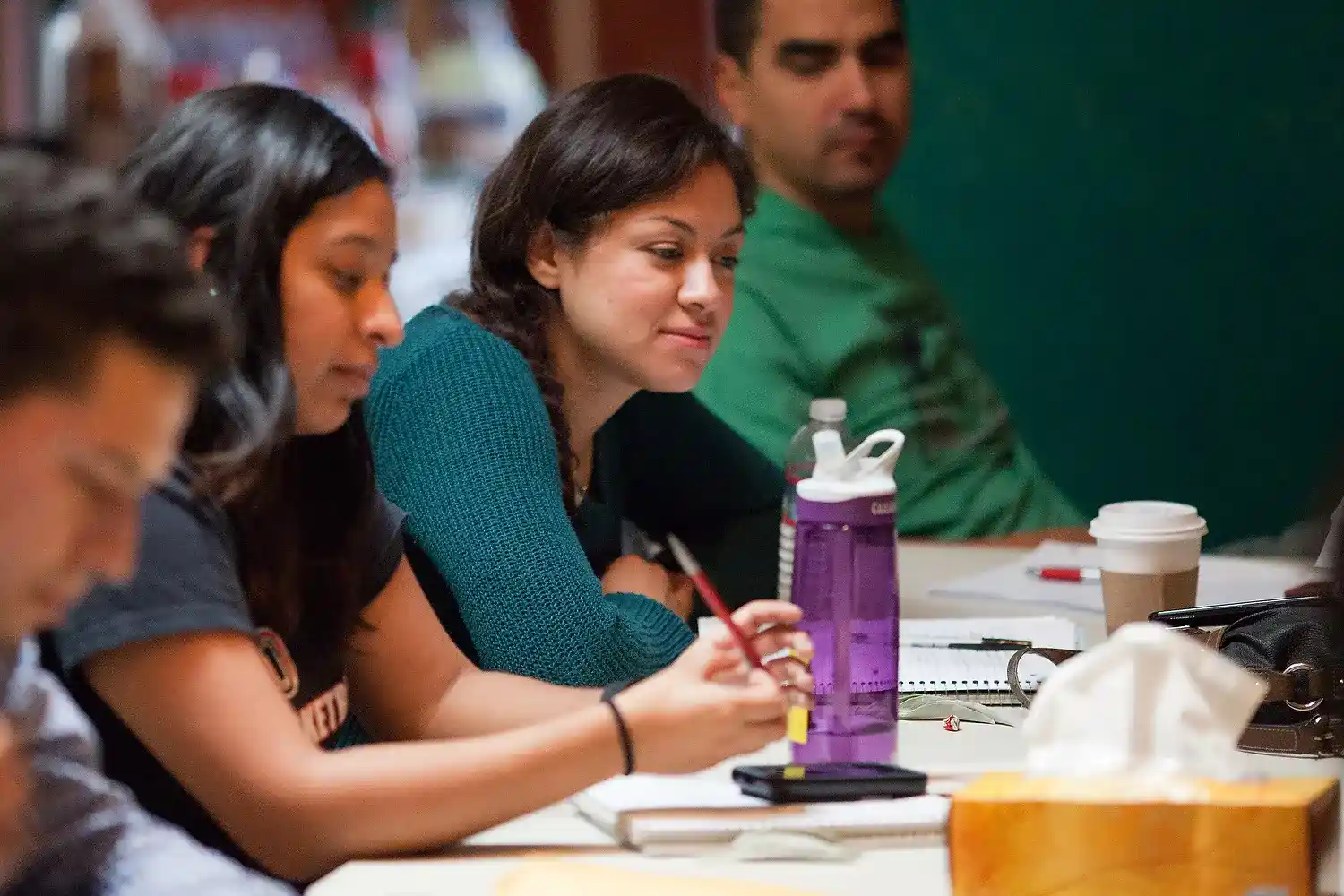Toward a Culture-Based Evaluation
For the purpose of documenting and assessing the effectiveness of NCN services, we refer to Cultura or culture as the customs and behaviors of people unified through history, language and geography. Our understanding of culture is similar to that expressed by Kluckhohn and Strodbeck (1961) who saw culture as a set of solutions to basic existential problems. These questions refer specifically to our relationships with our environment and with other people. The solutions can be understood as “values.” In small groups, values are passed down through personal interactions, with bigger societies preserving and transmitting it through institutions (Hofstede & Hofstede 2010).
Therefore, our working definition of cultura begins with a dynamic set of orienting valores (values), which are embedded in language, food, music, and other traditions. Culture also includes our relationship to that which we may not understand but is nonetheless vital--the spiritual domain of life. In the Americas, our indigenous ancestors acknowledged, respected, and revered the sacredness of their relationship to all forms of life, including the physical forces that support existence – earth, wind, water, and fire. While the “rules” are adapted to new realities, the spirit of this wisdom passes down from one generation to the next. This essence is a source of cultural identity, pride and serve as mechanisms for maintaining interconnectedness, individual health, and family well-being.
Where we look for Values; Relationships
The Physical World
One of the fundamental differences between indigenous culture and what we might call a modern “western” lifestyle is the attitude toward nature – earth, air, water and fire. Indigenous people see these elements as living entities, while in our modern world; they have been reduced to inanimate “objects.” Appreciating and valuing nature makes sense for people who sleep on the ground, rely on rain for their harvest or hunt for their dinner. Scientists name this understanding “animism.” Doing so makes it easy to dismiss this attitude toward the physical world, including our own physical bodies as superstition. As human beings we naturally relate to other humans and easily accept that having life means being able to speak a formal language and move about on two legs. Technology further separates us from the reality that we are still very much dependent on the physical world. We contend that this dismissal of our physical world leads to disconnection and disharmony. We literally are not aware of what sustains our lives or the simple fact that we have a life. In evaluating NCN’s La Cultura Cura strategies, services and interventions, we pay close attention to this aspect of relationships.
People
The importance of connections to other people in mental health is self-evident and central to practice and evaluation. In our evaluation work, we simply organize relationships into three broad categories; relationships with ancestors, current relationships and those yet to come. This perspective is consistent with an indigenous worldview, cyclical view of life. In our world view, we are currently living out the actions and decisions of those who came before us. Projecting into the future may take a little more thought and reflection to appreciate. This is especially true of us today as we consume as many resources as possible, not accustomed to thinking about what we are leaving behind for those that follow us. However, just as we live out the traumas and accomplishments of our ancestors, our own children and those who FOLLOW will do the same. Therefore, culture-based evaluation pays attention not only to those with whom we share life today, but also to those who continue to influence us through past and future behavior.
Institutions
At first glance, having a relationship with a social institution may seem as obscure as relating to the Earth, Water, Air or Fire. This may be in part due to the fact that in a similar fashion, we live embedded in culture. We, much too often, do not see the forest from the trees. A little closer observation clearly reveals how education and law enforcement systems play a vital role in how a person develops and lives. In their book Sociologists in Action, Korgen, White and White (2014) define social institutions as “patterns of behavior governed by rules that are maintained through repetition, tradition, and legal support. Members of every society create institutions to control human behavior and go about meeting their basic human needs” (italics added). The authors further identify the five major institutions as “the family, the economy, education, government, and religion.” Looking closely then, we can see that we do have a relationship with these deeply embedded patterns of behavior.
In our evaluation work, we therefore assume that institutions have a curative function. Ideally, they help people who deviate – who may wander off the “good road” to “success.” This refers especially to the medical and law enforcement systems. Both of these are primarily rehabilitative in nature. We further divide cultural institutions into basic, those that help first develop behavior and secondary or those that help maintain our ways of being. When basic institutions (family, religion and school) work well, the individual develops what we might call, a “pro-social” orientation.
Religion/Spirituality
The role of religion and spirituality in mental health is almost always controversial; most evaluations dismiss or avoid it. This may be in part due to the fact that much of mental health functioning comes from or through federal, state or local government organizations and the prevailing norm in the United States is that religion be separate from government. In practical terms, this means that practitioners should be objective, not allowing their own religious or spiritual values interfere with their client’s beliefs. It is our position that this type of relationship is neither possible nor effective. We believe that spirituality to one’s personal experience relationship with what one believes to be the source and meaning of life. We believe this experience to be subjective, unique or “sacred.” We therefore agree that no one should be forcibly indoctrinated into a specific way of believing. However, our intent is to capture and include in or our evaluation work, a sense of “spirituality.”
Why is spirituality or a sense of connection to “the source of life” important in evaluation work? We begin with the simple assumption that spirituality or a sense of relationship with “that which gives us life” is at the core of culture. In his book the Faith Instinct, Nicholas Wade (2009) professes that when anatomically modern humans left Africa some 75 to 100,000 years ago, they had already developed and took with them the beginnings of a “primordial religion” that facilitated communion with the world of the ancestors. Using modern imaging techniques, Rozin et. al. (2008) also assert that our sense of “right and wrong” has a biological basis in our brain. He notes that years of conditioning has left us for a “need” for some kind of religion or spirituality. We contend that whether through evolution or conditioning, people need a connection with something beyond themselves, the “sacred.” We believe that including this sacred aspect of life is critical to any understanding the effectiveness of any intervention.
Culture-Based Evaluation Principles
In documenting, assessing and evaluating our work, we strive for accountability to funders and responsibility to all relevant stakeholders, especially to the people we serve. We respectfully do our best to clarify and capture what happens, how people and systems respond, understand, and change from project participation. In designing evaluation plans, implementing methods and instruments we do our best to:
- Strive for Humility. We acknowledge that life is a mystery. Our understanding will always be colored and limited by our own personal history, culture, language and numerous other realities.
- Respect the values, healing practices, and ceremonies of all people. Consistent with La Cultura Cura philosophy, we seek to understand the inherent wisdom that guides people toward health and well-being.
- Honor the Holistic nature of experience, acknowledging rational-objective and intuitive-subjective sources of evidence. We value a grounded objectivity, where we acknowledge, clarify and include, rather than ignore or dismiss.
- Understand and define success in methods and measures that are Reciprocal to not only those who tell the story, but also those who live it. Evaluation outputs and products must be of benefit to those telling the story and those who actually live it.
- Be Purposeful in all we do. Our work is primarily to support, learn and share. This means we think carefully about what and how we measure and report - always with the client’s well-being at the forefront.
NCN Evaluation Services
While our primary objective is to support NCN activity, our services are available to partnering and collaborating organizations. We can make available ongoing technical assistance in design, creation and implementation of systems for documenting and assessing program effectiveness; including:
- Development of logic models and evaluation plans that define culturally appropriate objectives, outcomes, indicators
- Development of culturally appropriate questionnaires and surveys
- Training on instrument administration
- Creation of database for inputting data
- Consultation on data analysis and writing reports
References
Hofstede. G & Hofstede, G.J (2010) Cultures and Organizations; Software of the mind, and Cultures. McGraw-Hill
Kluckhohn, F. R. & Strodtbeck, F. L. (1961). Variations in value orientations. Evanston, IL: Row, Peterson.
Rozin, P., Haidt, J., & McCauley, C. R. (2008). Disgust. In M. Lewis, J. M. Haviland-Jones, & L. F. Barrett (Eds.), Handbook of emotions (pp. 757–776). The Guilford Press.
Wade, N. The Faith Instinct; How Religion Evolved and Why it Endures (2009), Penguin Press, New York, NY

